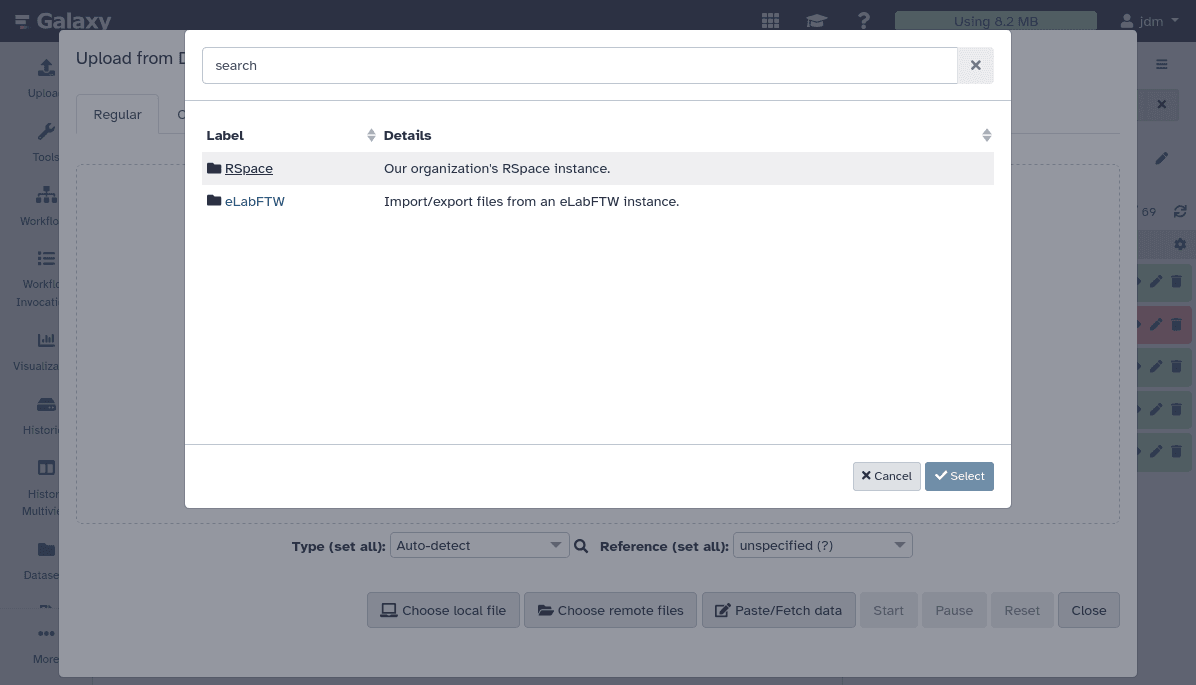RSpace is now integrated with Galaxy
Analyze data with Galaxy, keep it under control on RSpace
RSpace is an open-source research data management system (RDM) and electronic lab notebook (ELN) providing inventory and sample management systems and featuring a wide collection of integrations with other services. Thanks to our joint meeting on February, our collaboration has just been kickstarted integrating Galaxy with the RSpace Gallery as a repository! This means that files from the RSpace Gallery can be easily imported to Galaxy histories. After the analysis is complete, datasets and even whole histories can be exported back to the Gallery.
Getting started
The feature is available in Galaxy 25.0 and later. Before it can be used, the feature must be enabled by a Galaxy administrator. That makes it available to all users of the Galaxy server.
On Galaxy, configure a new RSpace repository under user preferences Manage Your Repositories > Create > RSpace.



Assign a name to your RSpace repository, enter the URL to your RSpace instance, and enter your RSpace API key (if you do not have an API key yet, follow the official instructions to generate one). Click Create.

Importing files to a Galaxy history
To import files from RSpace to a Galaxy history, click Upload on the sidebar and then Choose remote files.


After selecting RSpace, Galaxy shows one folder for each category of the RSpace Gallery.

Each category further contains folders and files just like a regular filesystem. Choose the file you would like to import.

Exporting histories to RSpace
Clicking Export History to File under History options opens the history export screen. There, select to remote file, choose a name, and finally use the box Click to select directory to open the remote repository browser. The same screen displayed when importing files will be shown, from where you can select a target category of the RSpace Gallery or a folder within it.
Keep in mind that categories and their subfolders can only contain files of certain types (e.g. jpeg, bmp, png, etc. for the Images category). History exports have the extension rocrate.zip, and thus are only allowed in the Miscellaneous category. Attempting to export a history to any other category will result in an error.

Exporting datasets to RSpace
Individual datasets may also be exported with the help of the dataset export tool. First, choose the datasets to export under the What would you like to export? section. Then click Select under Directory URI to open the remote file source browser, which allows to select the target category and folder.
Again, be mindful that categories and their subfolders can only contain files of certain types. Galaxy datasets can be assigned any name and most likely you will have to export them with a different name so that their extension matches one of the allowed in the category (to do so, choose Datasets specifying their names under What would you like to export?).




